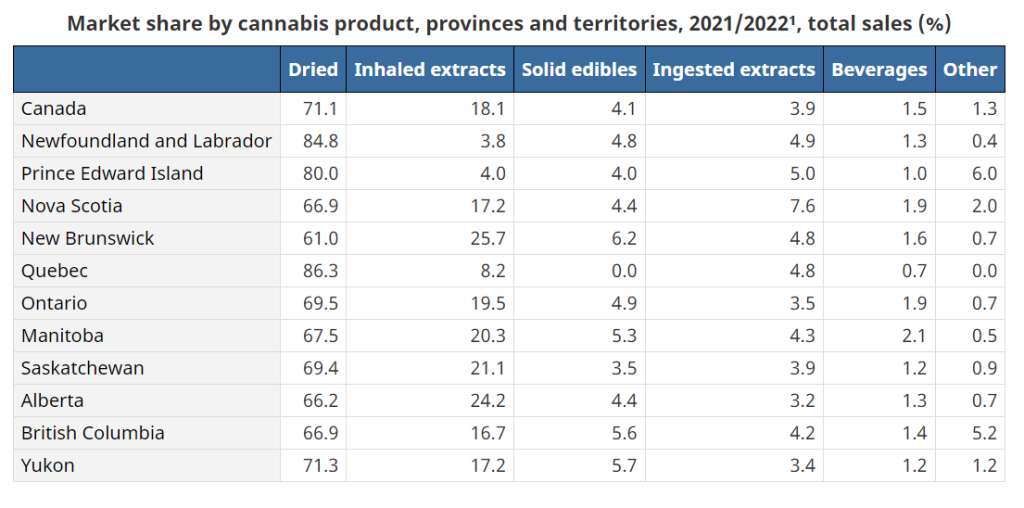Yukon Has The Highest Per Person Cannabis Sales Ratio In Canada

Statistics Canada released new sales data pertaining to the nation’s emerging legal cannabis industry for the period of April 1, 2021 to March 31, 2022. During that time period, Canada’s legal adult-use cannabis industry generated roughly $1.6 billion for federal and provincial governments.
To put the $1.6 billion figure into perspective, Canada’s alcohol industry generated roughly $13.6 billion during the same time period. The figures for both alcohol and cannabis include taxes at all jurisdictional levels, as well as fees related to licenses and permits.
Overall, sales for adult-use cannabis products across Canada (provincial cannabis authorities and other retail outlets) totaled roughly $4 billion between April 1, 2021 to March 31, 2022, which is “equivalent to $131 per person of legal age to consume cannabis” according to Statistics Canada.
Yukon, which is the smallest and westernmost of Canada’s three territories, had the largest per-person cannabis sales ratio at $291. Yukon was followed by Alberta ($210), Saskatchewan ($185), Nova Scotia ($125), and Manitoba ($107). Quebec had the lowest ratio at $89 per person of legal age. Data from certain jurisdictions is apparently ‘suppressed to meet the confidentiality requirements of the Statistics Act.’
Dried cannabis flower was by far the most popular form of cannabis sold during the specified time frame, accounting for 71.1% of all adult-use cannabis sales in Canada during the calendar year. Inhaled extracts made up 18.1% of overall sales and edibles gained 4.1% of the market share according to the available data. Below is a breakdown of market share by cannabis product, provinces, and territories according to Statistics Canada:

The data released by Statistics Canada comes around the same time findings were published from a very insightful survey analysis dealing with reported cannabis consumer spending habits.
According to the study, which was conducted by investigators affiliated with the University of Waterloo School of Public Health, “In 2021, the percentage of consumers sourcing all their products legally in the past 12 months ranged from 49 percent of solid concentrate consumers in 2021 to 82 percent of cannabis drink consumers.”
The growing success of adult-use cannabis legalization in Canada will not only benefit consumers within the nation’s boundaries but also consumers in other jurisdictions where lawmakers are pursuing legalization and keeping a close eye on Canada to see how things continue to develop.
